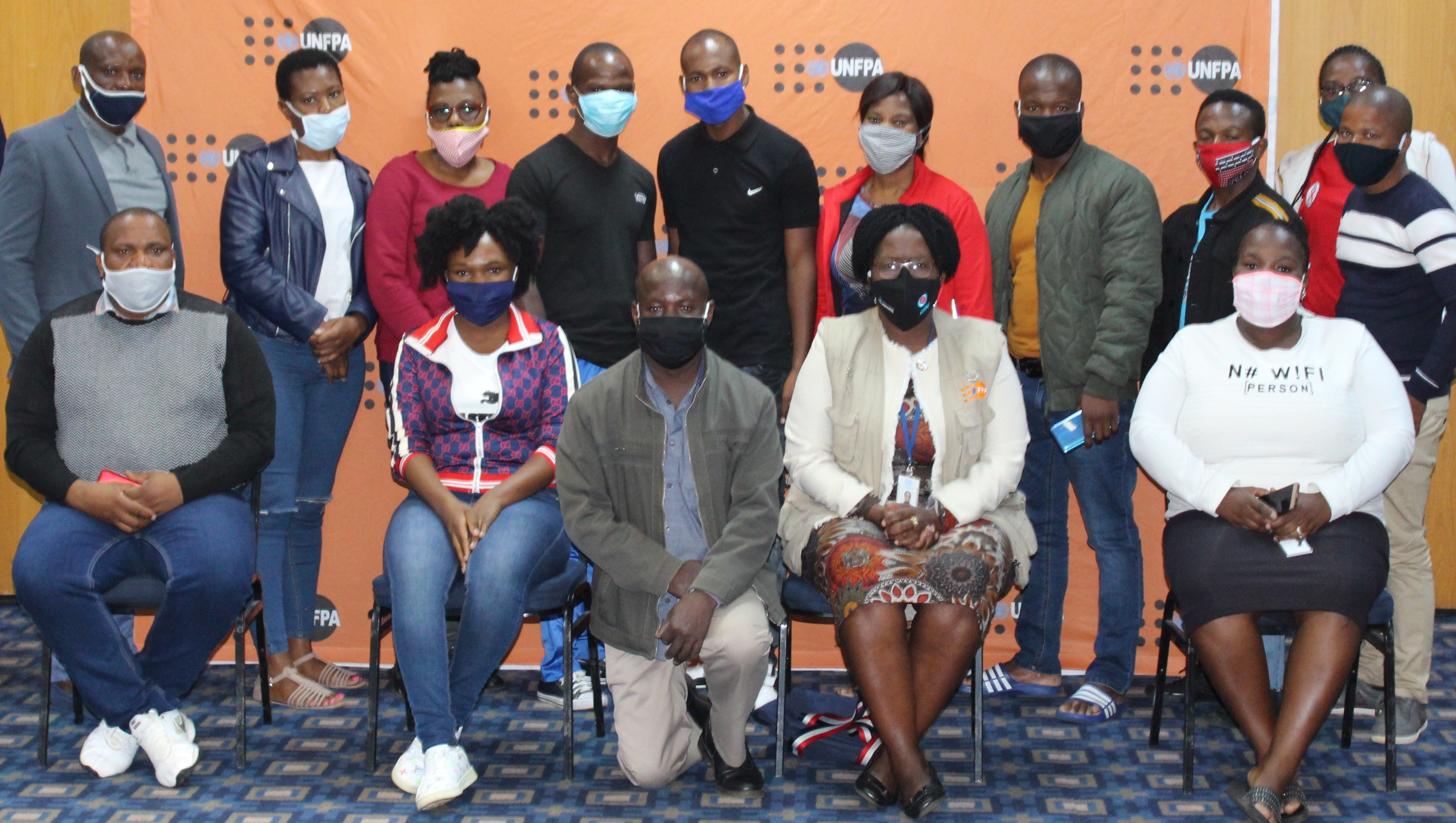As schools are closed due to the COVID-19 pandemic, one may assume teachers are idle at home. However, they are using this opportunity to better themselves in anticipation for the re-opening day. At least that’s true for the group of teachers, which had attended a Life-skills education (LSE) workshop on the 28th of May 2020.
This training was organized by the Career Guidance and Counseling Life Skills Directoratedepartment in the Ministry of Education and Training. It aims at equipping teachers with techniques for teaching life-skills education with a financial backing from the UNFPA Eswatini country office.
Among the participants was Mrs Nomcebo Makhubu-Mkhonta, who hails from Mpatheni in the Shiselweni region. She highly values the exercise and holds the view that the acquired knowledge will benefit her pupils a lot.
“This workshop is a great privilege. It’s a mind opening exercise which greatly improved my teaching abilities. I’ve gained so much information, mostly which I had no idea I didn’t know and that helped dispel some misconceptions I had,” she said.
On top of that, Nomcebo strongly believes the acquired skills go beyond the scope of classroom learning but everyday interactions.
“I’m going back to my workstation as a changed person now. The knowledge I acquired here will not only be applicable in my teaching, but in my daily interactions with the community as well,” the teacher said.
Another changed educator is Mr Manana of KaMbhoke, also in the Shiselweni region. He sees himself better equipped to teach after gaining insights on child’s behaviour.
In his words, “A child grows in phases. Each phase is associated with certain behaviour and may have some effects on the child’s classroom behaviour and performance. This LSE training has put me in a better position to understand each and provide appropriately to help every child in my class”
To Mr Manana, this training will come in handy in tackling some challenges that lead to the high dropout rate in high schools in Eswatini.
“A pupil may quit school if they feel discriminated against because of family background or misunderstood by teachers. Teenage pregnancy may also be a factor. Now that I’m trained, I’ll be able to look beyond just the causes but come up with solutions to curb these in my school,” Manana said.
The workshop was structured in a way to introduce the subject and equip the teachers on how to go about teaching it. Mr L Makhanya from Emphumelelweni in the Hhohho region explains,
“The days of a teacher ‘spoon-feeding’ pupils with information are over. We will make our lessons participatory and focus on behaviour change and all aspects of the child. That’s some techniques we went through in this workshop.”
As LSE is now provided to pupils from form 1 to form 4 in Eswatini, about 3200 children, who are currently learning from home due to the COVID-19 pandemic, are expected to benefit from the training.
“We are very grateful to the oganisers; our ministry and UNFPA. We gained valuable information from this workshop,” Mr Manana concluded.


